
Got sand in your shoes? At Carpinteria State Beach in California, you may have sand on the inside of your shoes and Miocene-age asphaltum, a natural tar or pitch on the outside if you walk beyond the water's edge. The Carpinteria State Beach is a beautiful and often uncrowded public park about 79 miles north of Los Angeles near Ventura, on the shores of the Pacific. Tar has been oozing and dripping from Miocene-age shale, conglomerates and sandstone bluffs along the Pacific Ocean beachfront since the Pleistocene epoch.
The beach itself is mostly free of asphalt except for the low bluffs along the shore. This park is the only public beach in North America where such a phenomenon is very prominent. While other tar beaches exist in the United States, they are not open to the public. Tar seeps on beaches are uncommon worldwide and there are only five such beaches.
The material oozes out all the time. On land it hardens on cool days, leaving a rubbery black substance that becomes soft again in warm weather.
WHY IS THERE SO MUCH PETROLEUM?
The answer lies in plate tectonics. Approximately 35 million years ago a complex of tectonic forces resulting from the interaction of the Pacific Plate, the Farallon Plate and the North American Plate along the San Andreas Fault system began. During the mid-Quaternary, approximately 10 to 15 million years ago, the older trenches along the prehistoric coastline disappeared and transform faults replaced them. A great many things were happening at that time, among them the opening of the Gulf of California (Baja California) because of rifting.
هذه القصة مأخوذة من طبعة July 2023 من Rock&Gem Magazine.
ابدأ النسخة التجريبية المجانية من Magzter GOLD لمدة 7 أيام للوصول إلى آلاف القصص المتميزة المنسقة وأكثر من 9,000 مجلة وصحيفة.
بالفعل مشترك ? تسجيل الدخول
هذه القصة مأخوذة من طبعة July 2023 من Rock&Gem Magazine.
ابدأ النسخة التجريبية المجانية من Magzter GOLD لمدة 7 أيام للوصول إلى آلاف القصص المتميزة المنسقة وأكثر من 9,000 مجلة وصحيفة.
بالفعل مشترك? تسجيل الدخول
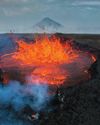
THE BRIGHT SIDE OF VOLCANIC ROCK
As a mineral resource, volcanic rock is decidedly short on glamour.
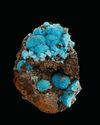
The Other Copper Minerals
12 Lesser-known Collectible Species

MINERAL COLLECTING -AND ROCK & GEM
Evolving Together FOR 54 YEARS
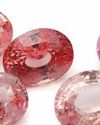
Gemstone Trends
A Look Back at 2024 & What to Expect in 2025
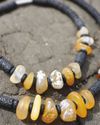
How to Make a GEM BEAD NECKLACE
No Lapidary Experience Needed!
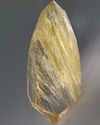
Framing Nature's Art
Faceting Rutilated Quartz for Beginners
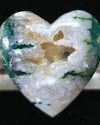
BEDAZZLED BLUE SEAM AGATE
More than several centuries ago, mining was the profession most often seen as befitting of men.
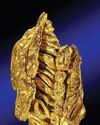
ROCK & GEM FIELD GUIDE:
Spinel is a captivating gemstone with a rich history of being mistaken for gems like ruby and sapphire.
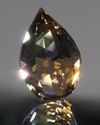
SNAKE SCALE DROP 1.5:1
This Faceting Focus is revisiting the briolette gemstone design because of its popularity with independent and hobby gemstone faceters.

STONE CHIC
How Earth-Inspired Decor Brings Comfort to our Home